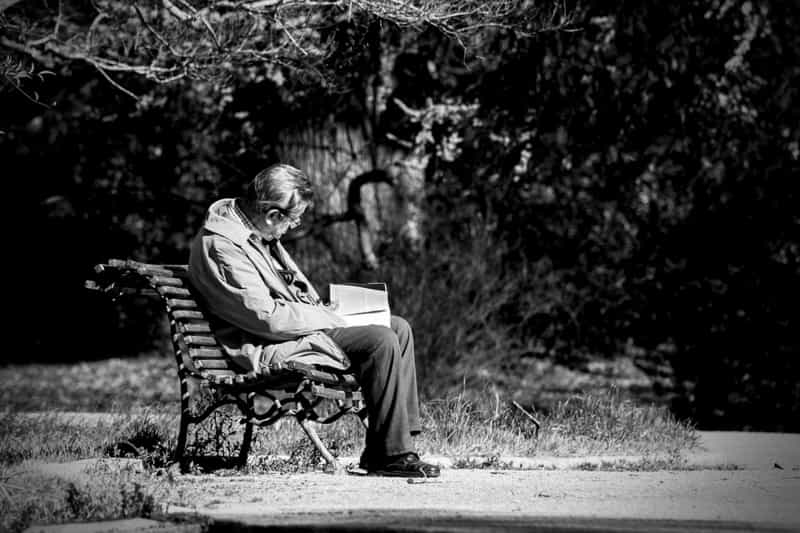We commonly have the idea of holidays as happy events that we spend with our loved ones and friends. However, some aging loved ones may experience depression. They often feel lonely, anxious, and isolated.
Senior loved ones especially are prone to feeling lonely and isolated during the holiday seasons. It could be due to the passing of a loved one, being far from the family, or feeling disappointed with aging. Many senior loved ones with depression fail to seek help, making the holidays even more restless since they are unsure how to handle their feelings. If you, your aging loved ones, or any family member suffer from depression, know you are not alone. Help is always available.
What Is Depression?
Depression is a mental health disorder. It negatively affects your feelings, thinking, and acting. Sadness is inevitable, so you should not panic if you feel upset or troubled now and then. Depression, nevertheless, implies you have persevering feelings of loneliness that alter the way you enter your life. This mental health disorder is unique in a way that anybody can experience it, regardless of age, gender, race, or class. Your genes can make you prone to having depression, so take note of your family genetic makeup and history if you are concerned about the mental health of your senior loved one. In addition, environmental factors add to the development of depression, like being exposed to poverty, abuse, or violence for an extended time. Knowing depression is not a narrow process, as signs of the disorder can differ from mild to severe. The following are the common symptoms:
- Constantly feeling gloomy
- Lack of interest or energy in previously loved activities
- Difficulty concentrating
- Feelings of uselessness and inability
- Extreme changes in weight or sleeping patterns
How the Holiday Seasons Affect Aging Loved Ones
As an older adult who loves the holidays, you might have difficulty understanding how the holidays could increase the depression of someone. Senior loved ones who see others having a good time and showing love to another one will often feel depressed and isolated about their situations. The assumptions in the holidays, from handling familial obligations to shopping for gifts for friends, can further add feelings of sadness and anxiety.
If your aging loved ones have difficulty staying positive during the holidays, let them relax and take a deep breath. It will help them. Understanding their feelings and thoughts may help ease their depression. These feelings are valid; there are steps you can take to fight holiday blues. If you notice that your aging loved one often changes moods, especially in the winter months, your loved one may have a seasonal affective disorder.
What is Seasonal Affective Disorder (SAD)?
Seasonal affective disorder is a type of depression someone may experience during the winter months of the year. Someone may exhibit feelings of sadness, helplessness, or fatigue. These feelings occur by the fact that life commonly slows down in the winter season. With shorter hours of sunlight, cold temperatures, and a more difficult time traveling, you are much more likely to stay home. Keeping yourself isolated increases depression and loneliness, as very few social engagements make you ask about your life and purpose.
Since seasonal affective disorder is a specific type of depression, the symptoms for the two mental health disorders are the same. For instance, if a diagnosis of depression is present to senior loved ones, they are more prone to SAD than the average individual. Their feelings may intensify more since they already have complex emotions. Moreover, gloomy weather may intensify the depression more.
The impact of SAD on seniors can lead to substance abuse, such as addictions to tobacco, alcohol, or other dangerous drugs. While it is common to feel gloomy in the winter months, you should be aware of your everyday feeling as the winter storms continue. If you observe a change in the mood or personality of your parents or grandparents as the seasons change, you may want to understand the treatment options for SAD to make sure your loved ones are healthy in the coming months.
Treating Depression on Senior Loved Ones
With millions of seniors with depression, it is good to look for treatment to help them cope with their feelings. You may find it unknown how to help your senior loved ones with depression. Yet, simply showing your care and support for your aging loved ones as they discover their depression can make an impact in their life. You can have a caregiver to attend to the needs of your senior loved ones. In that way, they can have someone to talk to and share what they love about the holidays. During this season, a companion is perfect. As they attend their treatment for SAD, it can help manage their mood swings with someone by their side. Speak with your physician if you have reasons to believe that your loved one has depression. The earlier the diagnosis is, the more immediate the treatment you can provide. In addition, if your senior loved one needs companion care, Senior Buddies are ready to give it. With our compassionate caregivers, we provide care and attention that nobody can offer. Give us a call now to get started. Let us fight depression altogether!


